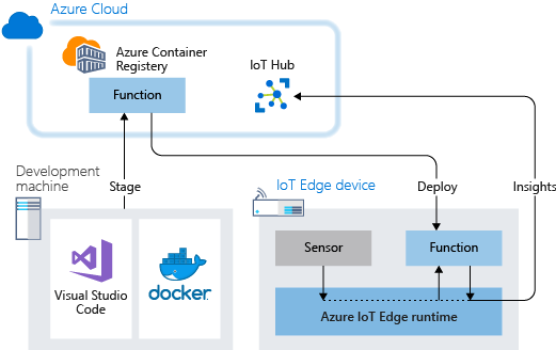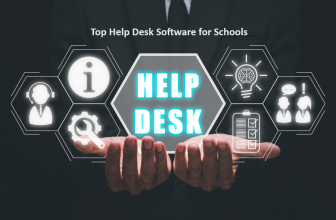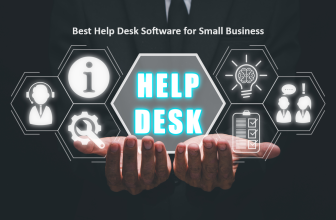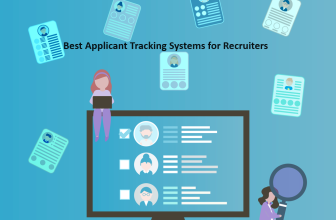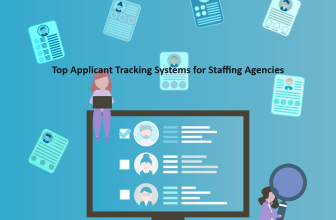Looking for some reliable Internet of Things (IoT) device management platforms for monitoring all the devices and sensors all at once? We have got just the best IoT device management platforms for all your needs! But before that, you must learn about it’s benefits, importance, cost, and building blocks so you can choose a platform that suits your requirements.
What we have in store? Detailed software reviews for the best IoT device management platforms as well as comprehensive buying guide. So, let’s check it all out!
What we cover
What is an IOT Device Management Platform?
An IoT Device Management Platform is like a tech-savvy conductor that orchestrates the performance of all your smart gadgets. It’s the wizard behind the curtain that helps you effortlessly control and monitor your Internet of Things devices – from smart thermostats to connected fridges.
Its purpose? To bring harmony to your digital realm by simplifying device setup, updates, and troubleshooting. So, when your smart lights decide to play hide-and-seek, this platform swoops in to save the day, ensuring your gadgets dance in sync. It’s the backstage hero your smart home deserves!
Why is it important to have a robust IOT Management platform?
A robust IoT management platform is like a conductor for connected devices. It tames chaos, boosts security, and keeps everything updated. It’s crucial because:
Importance:
- Harmonious Ecosystem: It ensures devices work well together, avoiding digital chaos.
- Security Shield: Protects against cyber threats by updating and securing devices.
- Efficiency Boost: Optimizes energy use and device performance.
- Data Insights: Collects and presents valuable data in understandable ways.
Benefits:
- Smart Choices: Individuals and businesses make informed decisions based on real-time insights.
- Efficiency: Remote monitoring and control optimize operations and routines.
- Savings: Businesses cut maintenance costs; individuals save on energy bills.
- Personalization: Tailors experiences into preferences.
- Stress Reduction: Simplifies device management, like having a tech-savvy assistant.
In a world of digital melodies, IoT management conducts a seamless symphony.
How are IOT Management Platforms used?
IoT management platforms play a vital role in overseeing the complete lifecycle of IoT devices, encompassing tasks ranging from initial provisioning to continuous monitoring and robust security. Their capabilities encompass:
- Device Provisioning: IoT management platforms facilitate device onboarding by assigning unique identifiers, configuring settings, and establishing network connections.
- Device Security Enhancement: These platforms bolster device security through the enforcement of stringent security policies, encryption of data, and proactive identification and response to potential security threats.
- Device Performance Monitoring: IoT management platforms enable real-time tracking of device performance, health status, and geographical location.
- Data Governance: Efficient data management involves data storage, processing, and controlled access, ensuring authorized users can leverage it effectively.
- Data Insight Generation: By employing advanced statistical and machine learning techniques, IoT management platforms uncover valuable patterns and trends within the amassed data.
- Automated Actions: These platforms bring data to life by automating tasks, issuing alerts, and generating comprehensive reports for informed decision-making.
- Smart City Management: These platforms efficiently manage urban infrastructure, from traffic lights to waste management systems.
- Industrial Automation: Industries utilize IoT management platforms for streamlining manufacturing, logistics, and various automated processes.
- Healthcare Enhancements: In the healthcare sector, these platforms monitor patient health, oversee medical equipment, and support clinical decisions.
- Retail Optimization: Retailers benefit from IoT management platforms for inventory tracking, streamlined supply chains, and personalized customer experiences.
- Efficient Logistics: Industries optimize shipment tracking, route planning, and asset utilization through these platforms.
- Energy Management: IoT management platforms monitor energy consumption, optimize grid operations, and contribute to emissions reduction.
The precise applications of these platforms naturally depend on an organization’s unique requirements.
How much do they cost?
The cost of IoT Device Management Platforms can vary widely depending on several factors, including the features offered, the scale of deployment, the number of devices being managed, the level of customization required, and the provider’s pricing strategy.
On average, for a basic plan that supports a moderate number of devices, you might expect to pay anywhere from $1,000 to $5,000 per month. However, prices can range from as low as a few hundred dollars per month for small-scale deployments to tens of thousands of dollars or more for large-scale, enterprise-grade solutions.
Factors affecting IoT Device Management Platform pricing:
- Device Count: Charges often correlate with the number of managed devices, leading to increased costs with more devices.
- Features: Platform depth and functions influence costs. Basic plans are cheaper; advanced features raise prices.
- Scaling: Larger deployments may need costlier plans to accommodate device growth.
- Customization: Tailoring the platform incurs extra charges.
- Data Usage: Data storage and bandwidth contribute to overall costs.
- Support Levels: Elevated customer support and uptimes come at an additional price.
- Security: Advanced security measures may lead to added expenses.
- Integration: Linking with existing systems or cloud services can affect pricing.
- Use Case: Tailored platforms for specific industries may have distinct pricing.
- Contract Length: Longer commitments could yield discounts compared to monthly payments.
It’s essential to request quotes from multiple vendors, considering your specific needs and evaluating the cost based on the factors listed above. As the IoT landscape evolves and new technologies emerge, pricing models may also change. Therefore, staying updated on the latest offerings and pricing strategies is crucial for making informed decisions.
How to choose the best IoT Device Management Platform?
Selecting the optimal IoT management platform involves careful evaluation of various factors to ensure its suitability for your needs. Key considerations to avoid making the wrong choice include:
Security and Scalability
Prioritize a platform that offers robust security features like data encryption, authentication, and authorization protocols. It should also be scalable to accommodate your growing IoT ecosystem without compromising performance or security.
Automation Capabilities
Look for platforms with advanced automation features such as rule-based triggers, real-time analytics, and predictive maintenance. These capabilities streamline operations, enhance efficiency, and reduce manual intervention.
Remote Management & Integration
Ensure the platform supports remote monitoring and management of your IoT devices. Seamless integration with existing systems, cloud services, and third-party applications is essential to create a cohesive ecosystem.
Data Management and Analytics
Choose a platform with comprehensive data management tools and analytics capabilities. This enables you to gather insights from IoT-generated data, aiding in decision-making and optimizing processes.
Device Compatibility
Verify that the platform supports a wide range of IoT devices and protocols, ensuring flexibility and ease of adoption for your specific use case.
User Interface and Experience
A user-friendly interface simplifies configuration, monitoring, and management tasks. An intuitive platform reduces the learning curve and enhances overall user experience.
By considering these factors, you can make an informed decision and avoid choosing the wrong IoT management platform. Always prioritize security, scalability, automation, remote management, integration, and analytics capabilities to ensure your IoT ecosystem’s success.
Top IOT Device Management Platforms
In today’s burgeoning IoT domain, the need for efficient IoT device management platforms is burgeoning as well. These platforms are instrumental in assisting organizations in smoothly managing and safeguarding their IoT devices, encompassing everything from initial setup to continuous monitoring. This article introduces a handpicked selection of premier IoT Device Management platforms, thoroughly evaluated for their distinctive attributes, functionalities, and pricing models. This empowers readers with the insights necessary to adeptly navigate this dynamic landscape and make well-considered decisions that align with their individual requirements.
Best IOT Device Management Platforms – At a Glance
| Criteria | Best For | Ease of Use | Reviews | Price |
| Microsoft Azure IoT Hub | Enterprise IoT Solutions | User-Friendly Interface | Positive User Feedback | Variable Pricing Tiers – $0.05 per million messages |
| Google Cloud IoT Core | Scalable IoT Projects | Smooth Configuration | High Ratings | Pay-as-You-Go Model – $0.0001 per message |
| AWS IoT Core | Wide IoT Integration | Streamlined Setup | Strong User Reviews | Flexible Billing – $0.000004 per message |
| Cisco IoT | Industrial IoT | Comprehensive Dashboard | Industry Recognition | Custom Pricing |
| IBM Watson IoT | Advanced Analytics | Intuitive UI | Favorable Reviews | Tailored Plans |
| Oracle IoT Cloud Service | Cloud-Integrated IoT | Simplified Management | Customer Satisfaction | Customized Pricing |
| Salesforce IoT Cloud | Real-time Data Analysis | Intuitive UX | Positive Feedback | Custom Pricing |
| Particle | IoT Prototyping | Developer-Friendly | Well-Reviewed | Subscription Model – $0.03 per device per month. |
| Smartworks | IoT Management | Intuitive Interface | User Acclaim | Custom Pricing |
| PTC ThingWorx | Industrial IoT | Robust Interface | High Ratings | Customized Plans |
Best IOT Device Management Platforms – Let’s dive deeper
1. Microsoft Azure IoT Hub
Microsoft Azure IoT Hub is a cloud-based solution designed for enterprise IoT, providing comprehensive device management features from registration to security.

Key features:
- Device registration and provisioning
- Security and authentication
- Data ingestion and processing
- Device management and monitoring
- Application development and integration
- Analytics and visualization
Ratings: 4.5/5
Pricing:
- Pay-as-you-go pricing based on the number of messages sent and received
- Free tier: Up to 8,000 messages per day
- Standard tier: Starts at \$0.05 per million messages
- Premium tier: Starts at \$0.03 per million messages
Pros:
- Comprehensive feature set
- Scalable and dependable
- Emphasis on security and compliance
- User-friendly interface
- Integration with Microsoft Azure services
Cons:
- Setup and management complexity
- Potentially high costs for extensive deployments
Microsoft is an esteemed IT industry player, recognized for its prowess and reputation. Azure IoT Hub, being well-established and widely used, boasts robust documentation, considerable support, and ample resources for users.
Check out tips and tricks for Microsoft Azure IoT in this video!
Why you should consider it:
For a full-fledged IoT Device Management platform with a broad spectrum of features, Microsoft Azure IoT Hub is a solid contender. It’s especially suitable for enterprise IoT solutions demanding scalability, security, and compliance.
Visit Microsoft Azure IoT Hub here!
2. Google Cloud IoT Core
Google Cloud IoT Core is a cloud-based platform known for its simplicity and scalability. It encompasses functions like device registration, provisioning, and security.
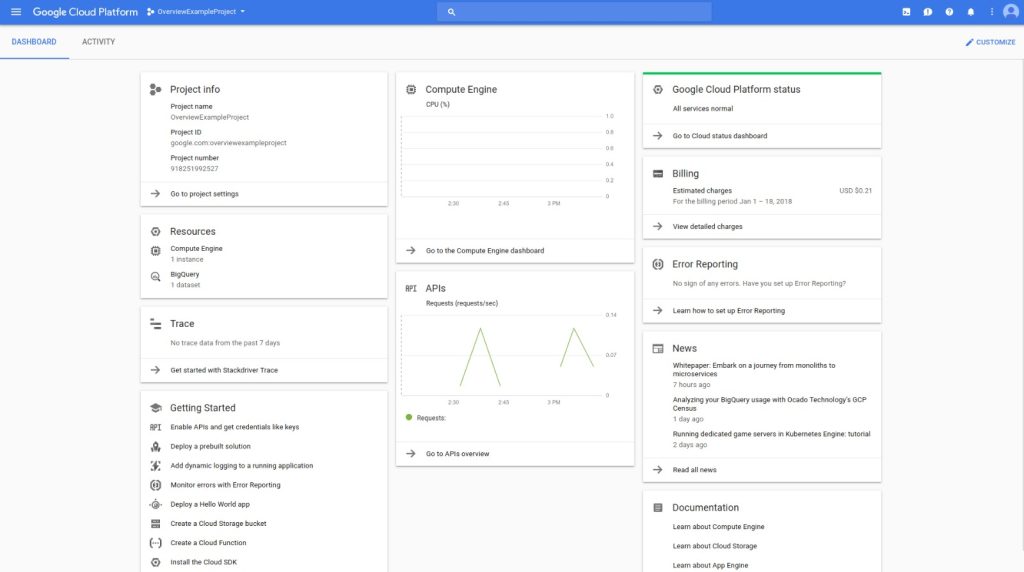
Key features:
- Device registration and provisioning
- Security and authentication
- Data ingestion and processing
- Device management and monitoring
- Analytics and visualization
- Edge computing
Ratings: 4.6/5
Pricing:
- Pay-as-you-go pricing based on the number of messages sent and received
- Free tier: Up to 10,000 messages per day
- Standard tier: Starts at \$0.0001 per message
- Premium tier: Starts at \$0.00005 per message
Pros:
- User-friendly interface
- Scalable and reliable
- Focus on security and compliance
- Integration with Google Cloud services
Cons:
- Fewer features compared to some competitors
- Potential for higher costs with extensive deployments
Google, a prominent tech innovator, offers the Cloud IoT Core with an upward trajectory in popularity. While relatively new, it boasts robust documentation, consistent support, and numerous resources for users.
Why you should consider it:
For a straightforward, scalable IoT Device Management platform, Google Cloud IoT Core fits the bill. It’s particularly suited for smaller to medium-sized IoT solutions not requiring an exhaustive feature set.
Visit Google Cloud IoT Core here!
3. AWS IoT Core
AWS IoT Core by Amazon Web Services is a cloud platform catering to diverse IoT applications, spanning device management, security, monitoring, and machine learning.
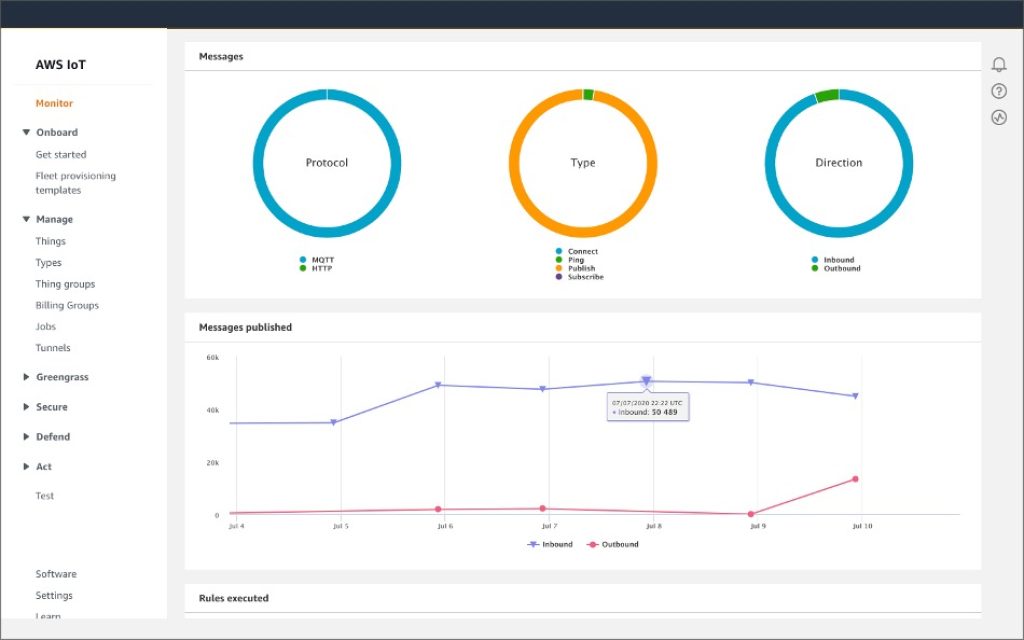
Key features:
- Device registration and provisioning
- Security and authentication
- Data ingestion and processing
- Device management and monitoring
- Analytics and visualization
- Machine learning
Pricing:
- Pay-as-you-go pricing based on the number of messages sent and received
- Free tier: Up to 1 million messages per month
- Standard tier: Starts at \$0.000004 per message
- Premium tier: Starts at \$0.000002 per message
Ratings:
- 4.5/5
Pros:
- Diverse range of features
- Scalable and dependable
- Strong focus on security and compliance
- Integration with AWS services
- Comprehensive support and documentation
Cons:
- Complex setup and management
- Potential for higher costs in larger deployments
As the leader in cloud computing, Amazon Web Services (AWS) offers the IoT Core with a substantial user base and well-established reputation. Its documentation, support, and resources cater to a wide spectrum of users.
Why you should consider it:
For a robust IoT Device Management platform with extensive features and scalability, AWS IoT Core is a strong contender. It’s well-suited for a wide array of IoT applications, including industrial IoT, smart cities, and healthcare.
4. Cisco IoT
Cisco IoT is a cloud-based platform with a wide range of capabilities, including device management, security, monitoring, industrial automation, and asset tracing, with a focus on industrial IoT.
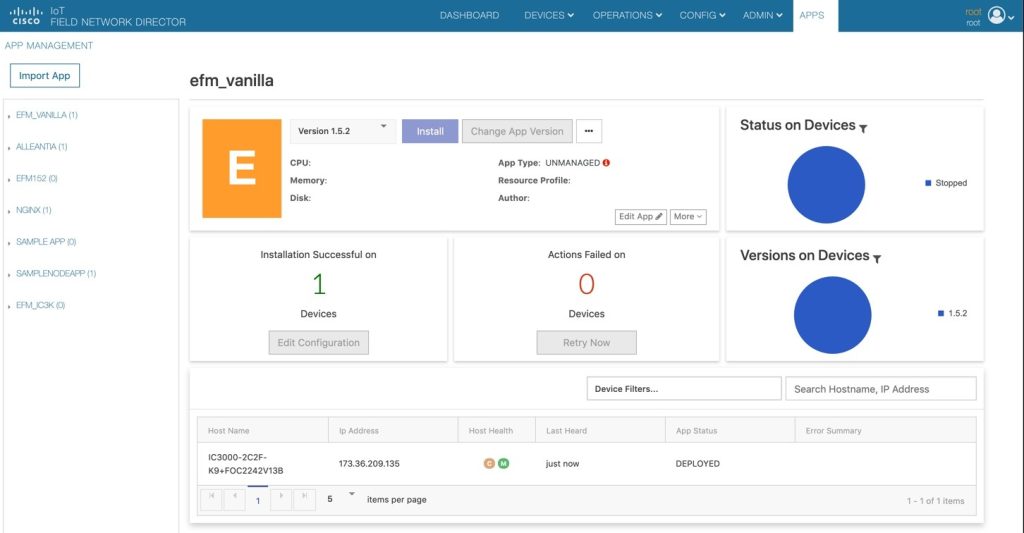
Key features:
- Device enrollment and setup
- Security measures and verification
- Data ingestion and processing
- Device oversight and monitoring
- Analytics and visual representation
Pricing:
- Contact Cisco for pricing information.
Ratings:
- 4.4/5
Pros:
- Encompasses a comprehensive feature set
- Tailored for industrial IoT applications
- Emphasis on security and reliability
- Robust support and documentation
Cons:
- Potential complexity in setup and management
- Potential for elevated costs
Cisco, a preeminent networking company, boasts an extensive history of providing enterprise solutions. Cisco IoT, as a well-established platform with a substantial user base, is underpinned by robust documentation, considerable support, and numerous resources to facilitate user onboarding.
Why you should consider it:
For those in search of a comprehensive IoT Device Management platform tailored for industrial IoT, Cisco IoT presents a compelling option. It caters effectively to organizations seeking security, reliability, and an extensive range of features.
5. IBM Watson IoT
IBM Watson IoT is a versatile cloud platform for IoT device management, covering device functions, security, analytics, and advanced AI and machine learning capabilities.
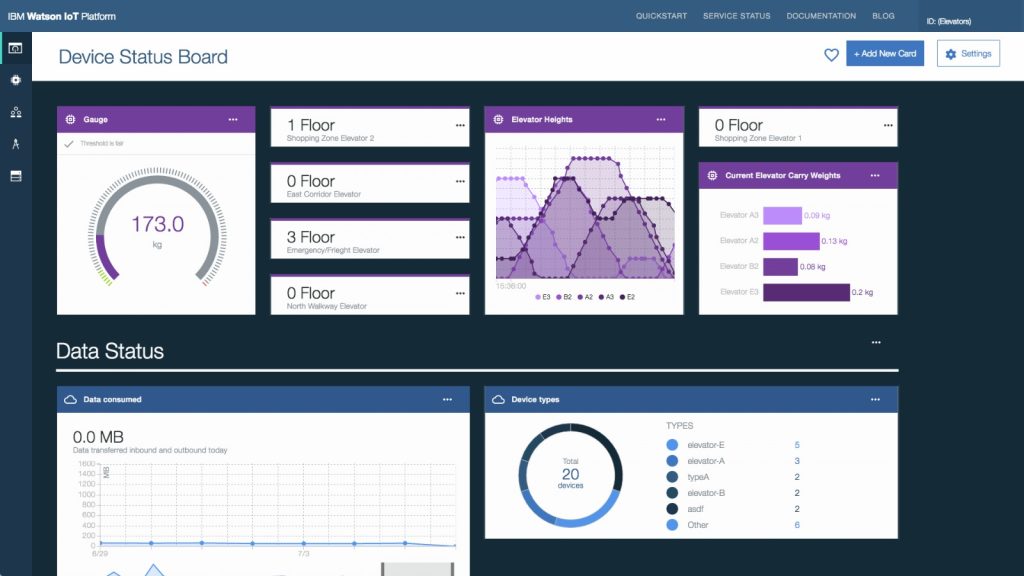
Key features:
- Device onboarding and configuration
- Ensuring device security and verifying identity
- Collecting and processing data inputs
- Supervising and overseeing device functionality
- Delivering data insights and graphical representation
- Implementing machine learning capabilities
- Incorporating artificial intelligence functionalities
Pricing:
- Contact IBM for pricing information
Ratings:
- 4.3/5
Pros:
- Encompasses an expansive feature set
- Robust machine learning and AI capabilities
- Focus on security and reliability
- Strong support and documentation
Cons:
- Potential complexity in setup and management
IBM, renowned for its prowess in artificial intelligence and machine learning, brings forward Watson IoT as a mature platform boasting a substantial user base. Supported by well-documented resources, it stands as a compelling choice for users.
Why you should consider it:
For those in search of an IoT Device Management platform with robust machine learning and AI capabilities, IBM Watson IoT offers a compelling avenue. It caters effectively to organizations aiming to harness insights from IoT data for operational enhancements.
Check out IBM Watson IoT here!
6. Oracle IoT Cloud Service
Oracle IoT Cloud Service offers a diverse range of IoT device management features, including registration, security, analytics, and edge computing, spanning various IoT applications.
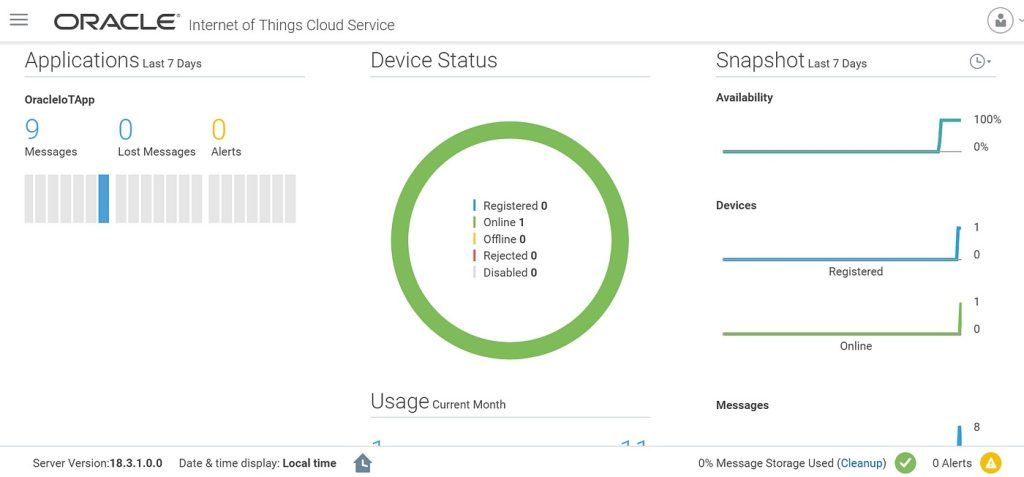
Key features:
- Device registration and provisioning
- Security and authentication
- Data ingestion and processing
- Device management and monitoring
- Analytics and visualization
- Edge computing
Price: Contact Oracle for Pricing.
Ratings: 4.3/5
Pros:
- Offers a versatile feature range
- Scalable and reliable
- Focus on security and compliance
- Integration with Oracle Cloud services
Cons:
- Potential complexity in setup and management
Oracle, renowned as an enterprise software powerhouse, brings forth Oracle IoT Cloud Service as an emerging platform rapidly garnering attention. Despite its relatively recent introduction, the platform is backed by robust documentation, substantial support, and diverse resources for users.
Why you should consider it:
For those seeking a well-rounded IoT Device Management platform boasting a diverse feature set and scalability, Oracle IoT Cloud Service emerges as a compelling choice. It effectively suits organizations aiming to seamlessly integrate their IoT solutions with Oracle Cloud services.
Check out Oracle IoT Cloud Service here!
7. Salesforce IoT Cloud
Salesforce IoT Cloud offers comprehensive IoT device management, including registration, security, analytics, and seamless integration with Salesforce CRM, with a focus on enterprise needs.
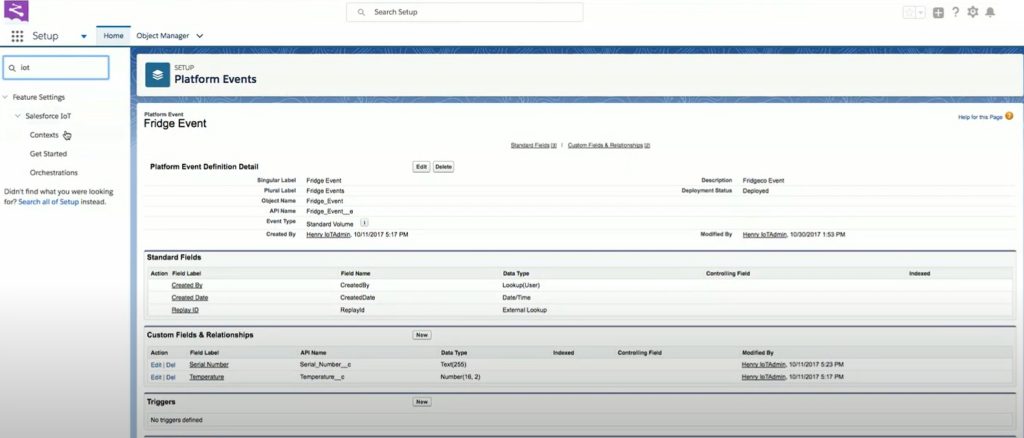
Key features:
- Device registration and provisioning
- Security and authentication
- Data ingestion and processing
- Device management and monitoring
- Analytics and visualization
- Integration with Salesforce CRM
Price: Contact Salesforce for Pricing.
Ratings: 4.2/5
Pros:
- Encompasses a wide range of features
- Seamlessly integrated with Salesforce CRM
- Focus on security and reliability
- Strong support and documentation
Cons:
- Potential complexity in setup and management
- Pricing considerations
Salesforce, a leader in customer relationship management platforms, introduces Salesforce IoT Cloud as an emerging platform gaining momentum. Despite its relative novelty, the platform is supported by substantial documentation, considerable support, and a wealth of resources.
Why you should consider it:
For those in search of an IoT Device Management platform seamlessly integrated with Salesforce CRM, Salesforce IoT Cloud stands as a worthy option. It is particularly suitable for organizations needing to streamline IoT data management within their Salesforce CRM ecosystem.
8. Particle
Particle enters the stage as a cloud platform offering a wide range of IoT device management features, including registration, security, monitoring, and edge computing.
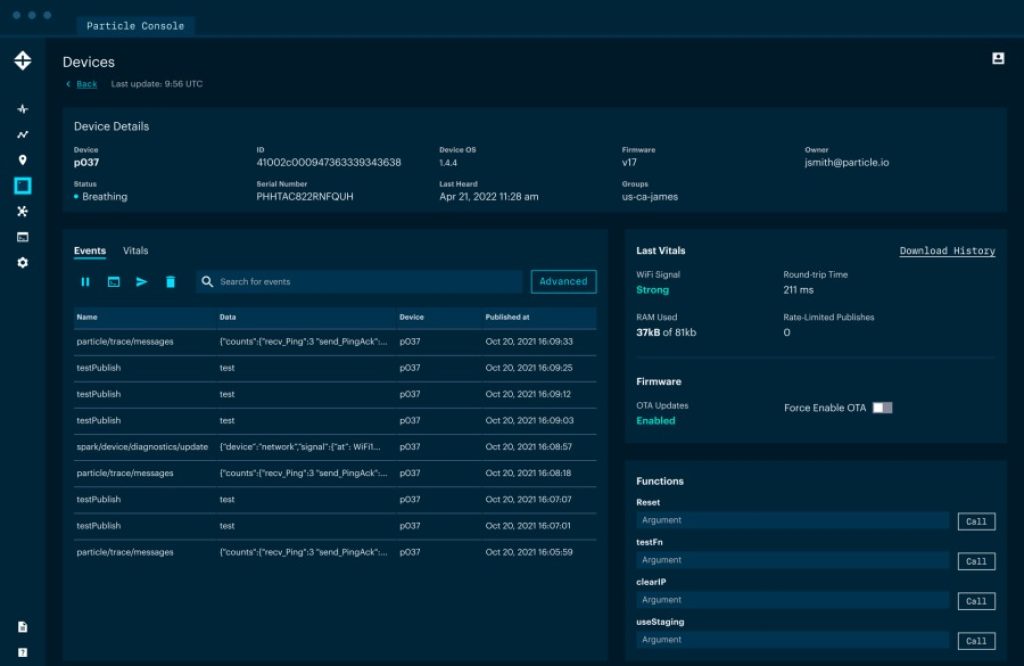
Key features:
- Device registration and provisioning
- Security and authentication
- Data ingestion and processing
- Device management and monitoring
- Edge computing
- Low-cost and scalable
Pricing:
- Pay-as-you-go pricing based on the number of devices connected and the amount of data sent and received
- Free tier: Up to 10 devices connected and 100MB of data per month
- Standard tier: Starts at \$0.03 per device per month
- Premium tier: Starts at \$0.01 per device per month
Ratings: 4.5/5
Pros:
- Comprehensive feature set
- Cost-effective and scalable
- Strong support and documentation
Cons:
- Potential complexity in setup and management
- Limited support for advanced machine learning and AI
Particle emerges as a startup specializing in providing IoT solutions across diverse industries. Despite its relatively recent establishment, Particle garners attention and traction. The platform is backed by robust documentation, substantial support, and an array of resources.
It’s a cost-effective and scalable solution for various IoT applications. Particle is particularly well-suited for organizations initiating their IoT journey or planning to expand their IoT initiatives progressively.
Why you should consider it:
For those seeking a comprehensive, budget-friendly, and scalable IoT Device Management platform, Particle offers an attractive avenue.
9. Smartworks
Smartworks offers a robust cloud platform for IoT device management, including registration, security, monitoring, and analytics, with a focus on industrial IoT applications.
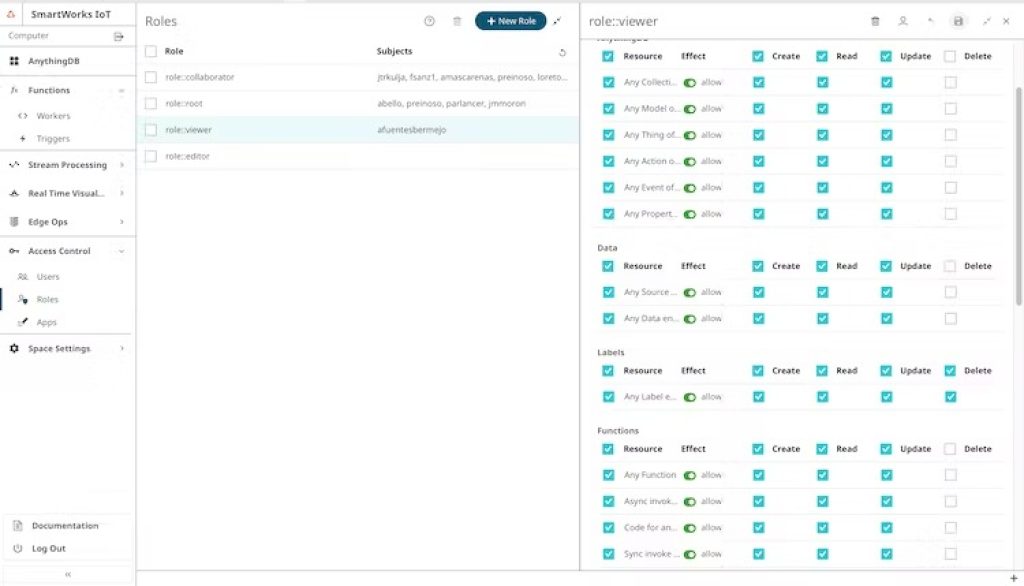
Key features:
- Device registration and provisioning
- Security and authentication
- Data ingestion and processing
- Device management and monitoring
- Analytics and visualization
- High level of security and compliance
Price: Contact Smartworks for Pricing.
Rating: 4.3/5
Pros:
- Comprehensive feature set
- Strong focus on security and compliance
- Well-supported and documented
Cons:
- Potential complexity in setup and management
- Considerations regarding pricing
Smartworks, a privately held entity, specializes in providing IoT solutions across various industries. Despite its relatively recent inception, the platform establishes itself with a reputation for delivering secure and compliant IoT solutions. It is backed by robust documentation, substantial support, and an array of resources.
Why you should consider it:
For those in search of a comprehensive IoT Device Management platform necessitating elevated security and compliance levels, Smartworks stands out as a worthy choice. It caters effectively to organizations operating within regulated industries or those prioritizing the safeguarding of sensitive data.
10. PTC ThingWorx
PTC ThingWorx unifies IoT device management, app development, and data analytics for diverse IoT applications.
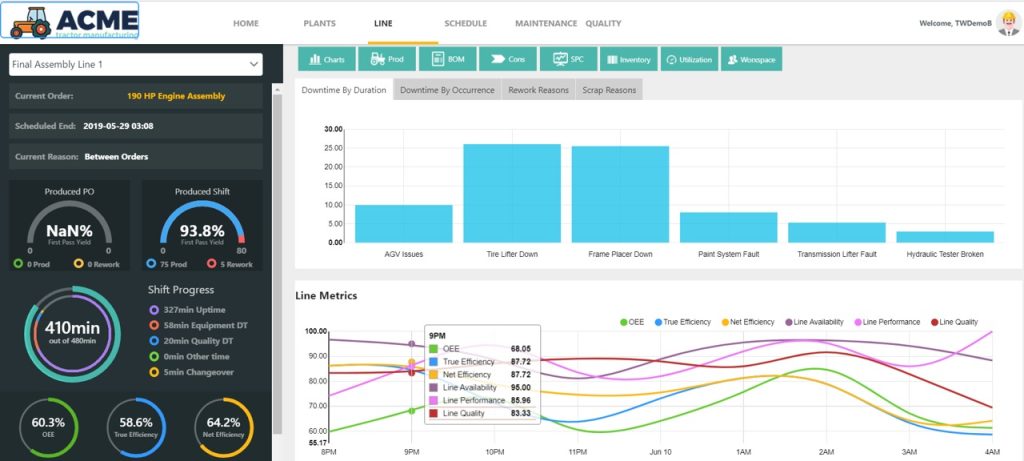
Key features:
- Device registration and provisioning
- Security and authentication
- Data ingestion and processing
- Device management and monitoring
- Analytics and visualization
- Application development
Pricing:
- Contact PTC ThingWorx for pricing information.
Ratings: 4.5/5
Pros:
- Encompasses a comprehensive feature set
- Empowers robust application development
- Strong support and documentation
Cons:
- Potential complexity in setup and management
- Considerations regarding pricing
PTC, a distinguished provider of product lifecycle management (PLM) software, unveils ThingWorx as a mature platform wielding a substantial user base. Supported by robust documentation and ample resources, it holds appeal for those seeking comprehensive IoT solutions.
Why you should consider it:
For those in search of an IoT Device Management platform coupling dynamic application development with a rich feature set, PTC ThingWorx emerges as an attractive choice. It caters effectively to organizations aiming to forge custom IoT applications or integrate their IoT endeavors seamlessly with other PTC PLM applications.
FAQs
What should I do if I encounter problems with my IoT device management platform?
if you come across difficulties with your iot device management platform begin by consulting the platforms documentation should the issue persist contact customer support for expert assistance additionally explore online resources and community forums for insights and potential solutions applying suggested fixes or workarounds such as adjusting settings
Does an IoT device management platform allow remote access and control of IoT devices?
Certainly, an IoT device management platform allows remote access and control over IoT devices. This feature empowers users to centrally oversee and manage their IoT devices, irrespective of the devices’ physical placements.
What automation capabilities do IoT device management platforms offer?
Broadly speaking, the automation capabilities of an IoT device management platform encompass the capacity to enlist and enroll IoT devices, supervise device details like status and position, execute software and other relevant updates, administer devices on a large scale, address issues, remotely adjust device configurations, ensure security, and seamlessly integrate data with other corporate applications.

